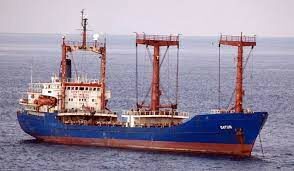ABSTRACT: The Memorandum of Understanding for P.S.C. adopted in Paris in 1982 and amended in 2005 and 2021 is the principal rules which governing Port State Control. These activities are very important for verifying the correct application of the standards imposed by the International Maritime Organization and by the International Labour Organization for the safety on board. Port State control is important, especially for preventing and protection of human life at sea.
In Port State Control (P.S.C.) the national authorities fulfil an inspection function on foreign ships operating on international routes. These activities are very important for verifying the correct application of the standards imposed by the International Maritime Organization and by the International Labour Organization for the safety on board. Port State control is important, especially to prevent and to protect human life at sea [1].
The Memorandum of Understanding for P.S.C. a dopted in Paris in 1982 and amended in 2005 and 2021 is the main set of rules that governs Port State Control. In this regulation underlines the importance of ensuring the international safety standards and the directive of European Parliament and European Council 2009/16/CE. Especially in recital (6) it is stated that:
Responsibility for monitoring the compliance of ships with the international standards for safety, pollution prevention and on-board living and working conditions lies primarily with the flag State [2].
The audit can be about the certification and documentation that the ship must possess (such as Safety Management Certificate, logbook, ecc). It also can be about the structure of the ship and in conformity with the international safety regulations (such as presence of double hull, proper functioning of life saving appliances, fire fighting devices, ecc).
When the audits are ending, the national authority release to the checked ship a certificate which certifies the compatibility with the international safety regulations. This document has six months of validity. However, if the ships presents any kind of non-compliance, It’s obligated to conform within a period established by the national authorities. If the national authorities during the audit remark some serious non-conformity, the ship is not considered safe and reliable and they must block it. These blocks will last until the prescription of the authorities are fulfilled and the ship is considered again safe and reliable, or the national authorities will be forced to issue a serious measure which prevent [3].
In last period were introduced informatics databases where the national authorities introduce the results of the audit, remarks, certifications. This database is shared with the other world national authorities.
Bibliografia
[1] Pierluigi Simone, Il Paris Mou del 1982 e il contributo dell’Unione Europea al rafforzamento dei poteri di controllo dello Stato di approdo, in Rivista di Diritto dell’Economia, dei trasporti, dell’ambiente, 2007.
[2] Directive 2009/16/CE. See in particularly A. V. Lowe, A move against substandard shipping, in Marine Policy, 1982.
[3] See in particularly Memorandum of Understanding on Port State Control, Paris, 26 January 1992 and subsequent amendments; Ho – Sam Bang, Duck – Jong Jang, Recent Developments in Regional Memorandums of Understanding of Port State Control, in Ocean Development & International Law, 2012.
Citazione bibliografica consigliata per questa risorsa
Andrea Galati, Port state control and safety of navigation, Articoli Specialistici, www.nelmaredeldiritto.it, 31 luglio 2023, <https://www.nelmaredeldiritto.it/2023/07/31/port-state-control-and-safety-of-navigation/>

